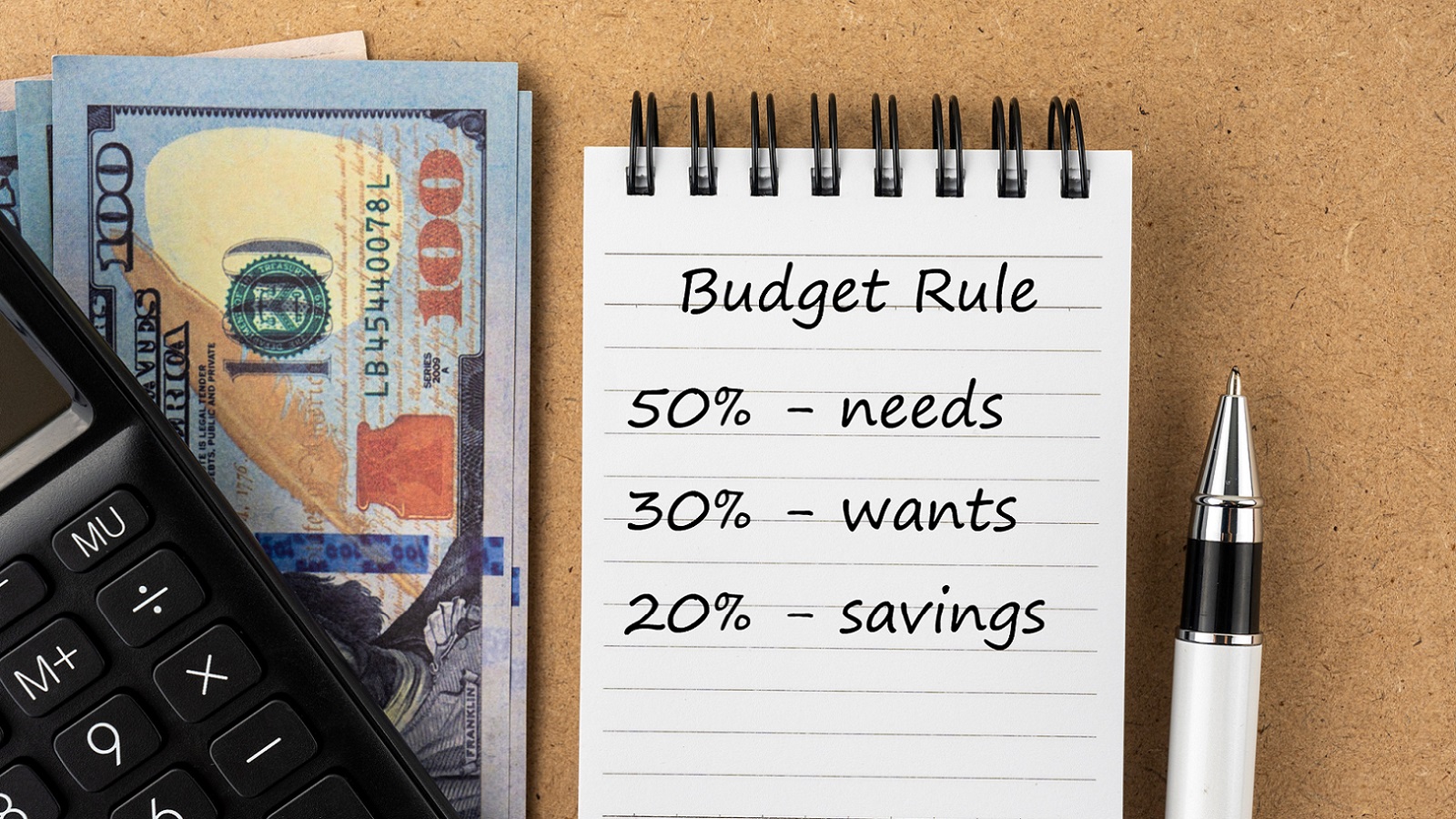Profit and prosper with the best of Kiplinger's advice on investing, taxes, retirement, personal finance and much more. Delivered daily. Enter your email in the box and click Sign Me Up.
You are now subscribed
Your newsletter sign-up was successful
Want to add more newsletters?

Delivered daily
Kiplinger Today
Profit and prosper with the best of Kiplinger's advice on investing, taxes, retirement, personal finance and much more delivered daily. Smart money moves start here.

Sent five days a week
Kiplinger A Step Ahead
Get practical help to make better financial decisions in your everyday life, from spending to savings on top deals.

Delivered daily
Kiplinger Closing Bell
Get today's biggest financial and investing headlines delivered to your inbox every day the U.S. stock market is open.

Sent twice a week
Kiplinger Adviser Intel
Financial pros across the country share best practices and fresh tactics to preserve and grow your wealth.

Delivered weekly
Kiplinger Tax Tips
Trim your federal and state tax bills with practical tax-planning and tax-cutting strategies.

Sent twice a week
Kiplinger Retirement Tips
Your twice-a-week guide to planning and enjoying a financially secure and richly rewarding retirement

Sent bimonthly.
Kiplinger Adviser Angle
Insights for advisers, wealth managers and other financial professionals.

Sent twice a week
Kiplinger Investing Weekly
Your twice-a-week roundup of promising stocks, funds, companies and industries you should consider, ones you should avoid, and why.

Sent weekly for six weeks
Kiplinger Invest for Retirement
Your step-by-step six-part series on how to invest for retirement, from devising a successful strategy to exactly which investments to choose.
In college, most of us were on a pretty equal footing when it came to money -- we were broke. In fact, our pathetic financial state was just another thing we had in common with our friends. We bonded over bowls of ramen noodles and joined campus clubs together just for the free pizza.
But as you graduate and head into the working world, that all begins to change. As much as you'd like to think it won't, money starts to play a bigger role in your friendships when you leave school. One friend's salary may start to eclipse the other. Or one of you may choose to go to grad school (taking a temporary vow of poverty) while the other opts for the first rung of the career ladder and a steady paycheck. These new disparities can give way to feelings of envy and resentment, make a less-fortunate friend feel left behind and jealous of the other's success, or a well-off friend feel taken advantage of.
| Row 0 - Cell 0 | Winning Roommate Roulette |
| Row 1 - Cell 0 | Build Your Financial Foundation |
| Row 2 - Cell 0 | Eight Things to Do Before Turning 30 |
| Row 3 - Cell 0 | Five Money Rules for Moving in Together |
So once money enters the picture, is your friendship doomed? That depends. Instead of focusing on the financial gaps, concentrate on what you have in common, and why you two are friends in the first place. "When things aren't the same financially, you actually have a good litmus test for friendship," says Joshua Klapow, associate professor of psychology and behavioral science at the University of Alabama at Birmingham. "You need to ask yourself, 'Am I hanging out with this person because I like them, or as a status symbol?'" he says. If your friendship has substance, it will most likely withstand the money test. If not, it may fall by the wayside.
From just $107.88 $24.99 for Kiplinger Personal Finance
Become a smarter, better informed investor. Subscribe from just $107.88 $24.99, plus get up to 4 Special Issues

Sign up for Kiplinger’s Free Newsletters
Profit and prosper with the best of expert advice on investing, taxes, retirement, personal finance and more - straight to your e-mail.
Profit and prosper with the best of expert advice - straight to your e-mail.
Something to talk about
One of the main reasons money can create a wedge between even the dearest friends is lack of communication. "There's a lot of mind reading that goes into this," Klapow says, and making assumptions can lead to misconceptions about your friends and their financial situations -- and unnecessary feelings of envy or bitterness.
Say, for example, you really can't afford to eat out at a certain fancy restaurant. But you don't want to admit that to your friend. "People will actually put themselves in debt to avoid having these tough conversations," says Margo Geller, a personal business and money coach in Atlanta.
We share our most intimate secrets with our friends. So why is it so difficult for us to broach the money subject? Two main reasons: We don't want to look bad, and we don't want to make our friends feel bad. People frequently lie to their friends about their money situation, says Geller. They may exaggerate their finances because they want to impress the other. Or, they may downplay their success to protect their friend's feelings.
Most often, though, it's the first situation. "People see money as power," Geller says. "So they keep up a charade out of pride." It's natural to want your friends to think you are doing well. But if you're putting yourself in financial danger to pull it off, it's either time to reexamine your communication skills or rethink the friendship. (Get more advice on how to break out of the debt cycle.)
And who knows? You may have a false notion about your seemingly well-off friend. Perhaps he or she is keeping up a charade, too. "In our culture, money equals status. But it's not so much the money itself as the things you can show for it," says Klapow. Your friend my drive a BMW and wear designer clothes but be up to his ears in debt. The friend bringing home the more meager salary may actually be more financially stable because he's a saver and manages his money better. Bringing up the topic could in reality lift a weight from both of your shoulders, says Klapow.
So how should you broach the subject? Rule number-one: Don't assume anything. You don't want to sound accusatory by starting off with "I know you have more money than I do ..." Instead, start by stating your positive feelings about the friendship then identify your own personal problem. For example, you might say, "I really like hanging out with you and I value our friendship. But on my teacher's salary, I can't afford courtside season tickets to the Knicks." Then work together to think of a solution. But again, put away your assumptions. Don't assume, for example, that by bringing up the topic your friend will volunteer to buy your tickets for you. If he does, great, but you shouldn't expect it, or you may be disappointed and feel even greater resentment.
This method works the other way, too. Say you're the one who's better off financially, but you think your friend has been mooching off you too much. Start off with your positive feelings and state your problem. For example, "I value our friendship, and I enjoy treating you now and then. But I feel as if you're relying on me too much financially and that I'm being taken advantage of." Then, again, work together to think of less-costly things you can do together, or offer to help your friend sort out his finances and build a budget.
If you bring up the money subject and your friend is unwilling to work with you to resolve the problem, perhaps your friendship isn't as strong as you had thought. This is a good way to ferret out "friends" who are interested in you only for your money or status -- or even those who hang out with you because it makes them feel superior, says Klapow.
Nip envy in the bud
Friends are supposed to be happy for each other in his or her success, right? Yet when one of your friends starts to drive a fancy car or take more exotic vacations, you feel jealousy instead.
Life is full of changes, and money simply adds one more to the mix. In fact, you've been in this situation before, says Geller. Remember in grade school when your friend got placed in a higher reading group than you? Or in high school, when you were picked for the varsity basketball team and your friend wasn't? Feelings of jealousy are natural, but instead of focusing on your differences, you need to zero in on your strengths. Sure, you may be the better basketball player, but your friend may have a better sense of humor. He may make more money than you, but you don't have to work late hours and weekends. You need to look at the big picture.
A little envy, however, isn't necessarily a bad thing. Having a friend who is better off financially gives you something to aspire to -- and motivates you to work harder for success in your own life. Asking your friends for money advice and finding out how they achieved their success could help you improve your own financial situation.
Lending money
You worked hard to achieve your success, and then your friend drops a bomb asking you for money. We're not talking about a little cash for cab fare or a round of drinks but serious money in the hundreds or thousands of dollars. This is a tough situation because you could lose the friend if you say "yes," and you could lose the friend if you say "no." "Once someone asks for money, you've now turned a friendship into a business relationship," says Klapow. "And as a general rule, you shouldn't go into business with friends and family," he says. It adds a whole new dimension that can create immense strain on a relationship.
That's not to say you should always say no. You need to look at your relationship and what you know of the person and the situation. "If your friend is on the brink of poverty, my God, give him some money," says Klapow. There are several temporary situations that could cause a money crunch, such as a job loss, health crisis, divorce or new business venture. But if your friend always seems to be struggling with money, think twice before spotting him serious cash.
For the sake of your friendship, it's best to think of any money you give a friend as a gift, not a loan. You shouldn't expect to get it back, says Klapow. Otherwise, you'll start to resent your friend if he can't repay it, and he'll start to feel guilty -- and may even try to avoid you. Give it as a gift of love, no strings attached, if possible.
However, if you choose to treat it like a loan, how your friend approaches you for money can tell a lot about your likelihood of getting it back. "When that person asks you for money, the first or second thing out of his mouth should be, 'and here's how I'm going to pay it back,'" says Klapow. The person asking for money should have thought about it enough to treat it like a business proposition. A smart way to manage a loan between friends is with a professionally administered loan from CircleLending. The company will send statements and track payments -- and provide healthy distance.
But what if you simply don't want to give or lend your friend money? Saying "no" to a friend is a tough proposition. It's best to approach it with what Geller calls a "positive sandwich." Start with a slice of positive: "I really care about you, I care about our friendship and I want what's best for you." Then come in with what's hard to say: "I don't feel comfortable lending you money because I think it will put too big a strain on our relationship." Then top it off with another positive: "I want you to know how important this friendship is to me and how much I care. I am willing to help you explore alternatives and find a solution to your money problem."
It really is possible for a friendship to survive a money issue -- if there's a true friendship there. "It's OK to have disparities in income, but if you're defining your relationship by money, it won't last," says Klapow.
PROBLEMS & SOLUTIONS
Key money matters
It's tough to know what to do when friendship and money start to mix. Use these solutions at a guide:
Problem: Splitting the bill at dinner.
Solution: You ordered a salad and water while your friend dined on steak and wine. Don't wait for the bill to arrive before deciding if you're going to split evenly or pay for what you ate. Bring it up en route to the restaurant or before you order. And if you have the wherewithal to treat the entire group, go for it. Just don't expect your friends to reciprocate next time you go out.
Problem: Your friend asks you for money.
Solution: Lending money complicates things by turning your friendship into a business relationship. If you feel comfortable doing it, and if you can afford it, go ahead. Just don't expect to get the money back, even if it's a large amount. However, if you prefer to set it up like a loan, go through a third-party administrator such as CircleLending.
Problem: Your well-off friend insists on buying everything for you.
Solution: This may not seem like a problem, but after a while you may start to feel like you don't contribute to the friendship. Look for non-financial ways to reciprocate, such as treating your friend to a home-cooked meal, or cat-sitting when he or she goes out of town.
Problem: You can't afford the activities your friend wants to do.
Solution: A true friend won't want to drive you in debt just to spend time together. Put your heads together to think of things you enjoy that don't cost a lot of money. But speak up, or else he may not know you're struggling.
Problem: You feel like your friend is mooching off you.
Solution: Friends should feel free to treat each other now and then, but you don't want to be a doormat. Think of it this way: Give a man a fish and he eats for a day. Teach a man to fish, and he eats for life. Offer to help your friend think of solutions to improve his financial situation so he doesn't have to rely on you so much. And don't be afraid to just say "no" when he asks for something. Just make sure to give your refusal a positive spin.
Problem: Your friend asks how much money you make.
Solution: You can tell him if you like. But if you're not comfortable with that, you can always say "I'd rather not talk about that." Or give a vague answer such as "I make enough to pay the bills," "I make pretty good money," or "I'm struggling a bit, but I'm getting by." Or you could always return the question with another question, "Why do you ask?"
Profit and prosper with the best of Kiplinger's advice on investing, taxes, retirement, personal finance and much more. Delivered daily. Enter your email in the box and click Sign Me Up.

-
 Dow Leads in Mixed Session on Amgen Earnings: Stock Market Today
Dow Leads in Mixed Session on Amgen Earnings: Stock Market TodayThe rest of Wall Street struggled as Advanced Micro Devices earnings caused a chip-stock sell-off.
-
 How to Watch the 2026 Winter Olympics Without Overpaying
How to Watch the 2026 Winter Olympics Without OverpayingHere’s how to stream the 2026 Winter Olympics live, including low-cost viewing options, Peacock access and ways to catch your favorite athletes and events from anywhere.
-
 Here’s How to Stream the Super Bowl for Less
Here’s How to Stream the Super Bowl for LessWe'll show you the least expensive ways to stream football's biggest event.
-
 I Need to Cut $1,000 From My Monthly Budget, and I've Already Given Up Starbucks and Dining Out. What Else Can I Do?
I Need to Cut $1,000 From My Monthly Budget, and I've Already Given Up Starbucks and Dining Out. What Else Can I Do?Here are some creative ways to save up to $1,000 a month, even if you feel like you've already made all of the obvious cuts.
-
 I'm a Government Employee and Need to Get By Until the Shutdown Ends. What Can I Do?
I'm a Government Employee and Need to Get By Until the Shutdown Ends. What Can I Do?The second-longest shutdown in history is leaving many federal workers with bills due and no paycheck to cover them. Here's what you can do to get by.
-
 What Does Medicare Not Cover? Eight Things You Should Know
What Does Medicare Not Cover? Eight Things You Should KnowMedicare Part A and Part B leave gaps in your healthcare coverage. But Medicare Advantage has problems, too.
-
 The 50-30-20 Budget Rule: A Simple Way to Save Money
The 50-30-20 Budget Rule: A Simple Way to Save MoneySaving Using the 50-30-20 budget rule is an easy way to save. It helps you prioritize saving while paying off debt.
-
 Four Smart Steps To Take Before Buying Your First Home
Four Smart Steps To Take Before Buying Your First Homehome Buying your first home can be daunting. Here are four things you need to do years before you start house-hunting to prepare financially for the biggest purchase of your life.
-
 'Food Tax': Which States Still Tax Groceries?
'Food Tax': Which States Still Tax Groceries?State Tax Ten states still tax groceries, but that figure is shrinking.
-
 How Our Family Fights Inflation
How Our Family Fights InflationBudgeting Millennials typically spend more than other generations on certain expenses that have been increasing most rapidly. Here are some tips to cut your losses.
-
 Gas Prices Around the World
Gas Prices Around the WorldBudgeting Many world gas prices can make what Americans pay at the pump seem like a bargain. But not all.
